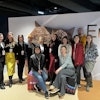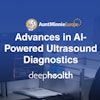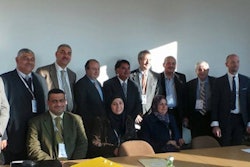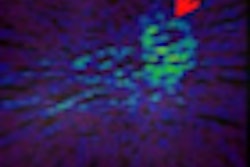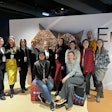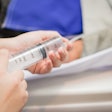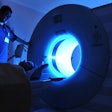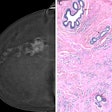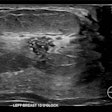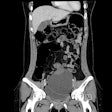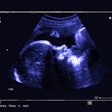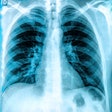
Radiology in Iraq seems to be moving in the right direction again, after the devastation caused by decades of war, terrorism, and violence. Attempts to rebuild the training and education system are bearing fruit, but additional support from Europe and beyond is still urgently needed, according to senior radiologists.
The two Gulf Wars and the resulting social chaos and anarchy led to a virtual suspension of Iraq's radiological training scheme, even though the country has a rich medical heritage, according to Dr. Ahmad Al-Shamssie, former chairman of radiology at the Baghdad Teaching Hospital. Several of Baghdad's 125 or so radiologists have been assassinated over the past decade, and they have faced constant death threats. As a result, about a third of them left the capital for safer places in the north and south between 2003 and 2008, he estimates.
But now the country's 500-plus radiologists are getting back on their feet and are eager to update their knowledge of the latest technologies, obtain more internationally recognized qualifications, and actively engage with the global imaging community.
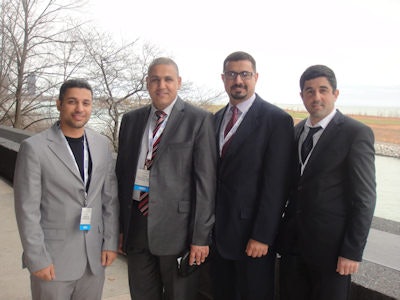 Smiling again: Iraqi radiologists are looking forward to a brighter future. From the left are Dr. Zaid A. Hussein, Dr. Hazim Al-Janabi from Bagdhad, Dr. Ahmad Al-Shamssie, and Dr. Hani Salmo.
Smiling again: Iraqi radiologists are looking forward to a brighter future. From the left are Dr. Zaid A. Hussein, Dr. Hazim Al-Janabi from Bagdhad, Dr. Ahmad Al-Shamssie, and Dr. Hani Salmo.Dr. Hani Salmo, from Erbil University Hospital in northern Iraq, personifies the new mood of optimism that is growing among younger radiologists. He spent about 4,540 euros ($6,000 U.S.) of his own cash to take the first part of the clinical radiology examination of the U.K. Royal College of Radiologists (RCR), and then another 3,800 euros ($5,000 U.S.) to take modules 3-6 (gastrointestinal, genitourinary/adrenal/ob-gyn/breast, pediatric, neuroradiology), in which he was successful. He now has only modules 1 and 2 (chest and musculoskeletal) to complete before he becomes a fellow of the RCR.
"With all the thousands of dollars I've spent, I simply had to pass!" he said. "I had to travel to Singapore to take the exams, and that really increased the cost and the time I needed to be away."
The problem is that the options for Iraqis are very limited due to logistical factors and visa requirements. They usually have to obtain a visa to Singapore from travel companies in Iraq or from neighboring countries, which can be an expensive and time-consuming process.
"It's every radiologist's dream to have an FRCR qualification, but it's very difficult for us," said Dr. Zaid A. Hussein from Amarah in southeastern Iraq. "It would be so good if we could do the exams in Jordan, United Arab Emirates, or Turkey, for example."
In spite of such obstacles, the situation has improved steadily, and education has a vital role to play in bringing about further advances, noted Al-Shamssie, who was the regional supervisor for postgraduate training before he relocated to the Nationwide Children's Hospital in Columbus, Ohio, U.S., more than three years ago.
Following the Second Gulf War in 2003, all doctors, lawyers, teachers, and other professionals in Baghdad faced the possibility of assassination. Many doctors have been kidnapped for ransom, and even after a payment was made, they were later found murdered and their bodies dismembered, he said. Health workers were exposed to routine attacks, military occupation of hospitals, harassment, arrest, and maltreatment by terrorists looking to destabilize society, dismantle the health service, and cause chaos and maximum disruption, found Ministry of Health officials.
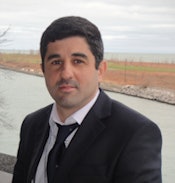 Dr. Hani Salmo has already invested about 8,300 euros ($11,000) of his own cash on sitting for the U.K. Royal College of Radiologists' fellowship examination.
Dr. Hani Salmo has already invested about 8,300 euros ($11,000) of his own cash on sitting for the U.K. Royal College of Radiologists' fellowship examination.
A total of 315 academics and scientists were assassinated between 2005 and 2011, according to the Spanish Campaign against the Occupation and for the Sovereignty of Iraq (iraqsolidaridad.org). Al-Shamssie's close friend and fellow Baghdad radiologist, Dr. Samir Saleem, was murdered in June 2007, and he received many threatening letters himself.
Until fairly recently, Iraqi radiologists remained largely isolated from the rest of the world. They were isolated before the Second Gulf War because they had no access to the Internet, and then they were isolated due to visa restrictions and because the radiological profession had little or no organizational structure and the training system was in tatters, according to Al-Shamssie.
There is now much more reason for optimism, however. He has attended the past four RSNA congresses to inform international attendees about the situation in Iraq, canvas support and raise funds for education, and draw up a proposed plan of action for the American College of Radiology and RSNA to assist the rebuilding of radiology. He thinks academics in Iraq need more support because they will change society and have a positive impact. It is time for Iraq to rejoin the international community, and global exchange programs will allow qualified people to lead the country in a professional way, he stated.
Al-Shamssie, Salmo, and their colleagues strongly support the European and U.S. approaches to education, and now that Iraq is a safer and more affluent society, they think it is time to update their own country's training system. Their top priority is to cooperate with the RCR and open a center in Baghdad for those looking to sit the FRCR examination.

